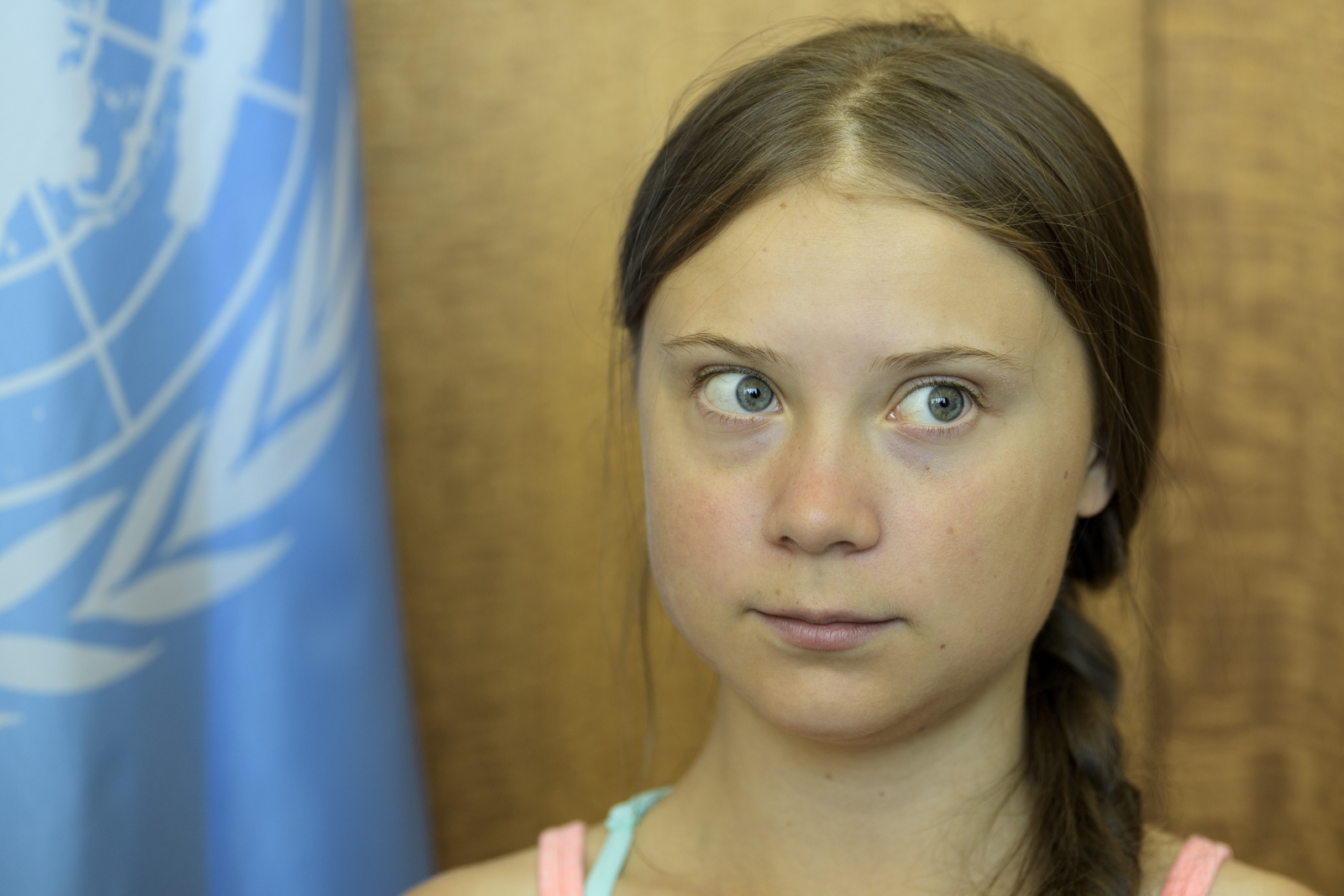
Naomi Klein (centre) launched the Leap Manifesto in Toronto in 2015. Darren Calabrese / The Canadian Press files
There are few global or international challenges that have brought our species together in solidarity. One can think to D-Day or the Apollo moon landing as examples of western countries using, in the former case, our collective capacity to push back totalitarian hate, and in the latter, defying what we knew was possible in terms of space exploration.
But there has never been a time in human history, which is not very long, where we have stared collectively into the mirror of our own existence.

For the past six decades, we have known that we have been causing catastrophic damage to our home. If you dispute the history of our destruction, Sept. 27 of this year marked the 57th anniversary of the release of Rachel Carson’s environmental science book, Silent Spring. (It should be mandatory reading for all educators.)
Sept. 27 of this year also marked the largest student demonstration in human history, with millions of youth leaving their classrooms to fight for their future and wake the rest of us up. It is this existential struggle that has compelled Naomi Klein, Canadian journalist, activist, and progressive, to release her latest book, On Fire: The Burning Case for a New Green Deal.
The author of No Logo and This Changes Everything, among others, was also a critical player in the development of the Leap Manifesto and the Green New Deal, supported by none other than U.S. presidential candidate Bernie Sanders and championed by U.S. congresswoman Alexandria Ocasio-Cortez.
In On Fire, Klein is inspired by the new voice of moral courage on our planet, Swedish teenage activist Greta Thunberg, and the millions of youth turned activists who should be enjoying this time of adolescence but, owing to our greed and neglect, are forced to fight for the very thing that sustains life: planet Earth.
According to Klein, “learning has become a radicalizing act,” whereby in spite of adults, our children are participating in civil disobedience because “they are the first for whom climate disruption on a planetary scale is not a future threat, but a live reality.” They no longer have the idle pleasure of succumbing to what Aristotle calls akrasia, the human tendency to act against our better judgment.
On Fire provides a series of Klein’s essays written over the past decade, which not only chronicle the monumental and catastrophic canaries in the coal mine (the 2010 BP explosion in the Gulf of Mexico, the rise of fracking, the burning of the boreal forest, etc.), but also make the case for the need of a new understanding of how we live together. Of how we treat and share resources. Of how we become stewards of the Earth so that everyone has the means for a decent life.
And much of this work began in 2015, as Klein and other leaders began to develop the Leap Manifesto. Only four years ago, Canadians and the world were presented with a plan towards sustainability, equity and stability that was scoffed at by the likes of Stephen Harper, Justin Trudeau and even Thomas Mulcair. Fast forward to 2019, and we’re still debating who will champion which pipeline.

Following the Leap Manifesto, in 2019 the Green New Deal arrived on Capitol Hill and has provided the basis for a global conversation about a positive pathway forward. Inspired by Franklin Roosevelt’s New Deal, Klein helped develop a framework that checks unbridled capitalism, addresses social inequity and fully realizes the planetary emergency that stares us in the face.
The Green New Deal calls for a fundamental shift in how we operate. It calls for us, Klein argues, to “swerve off our perilous trajectory” through “sweeping industrial and infrastructure overhaul.”
It calls for us to stop denying the future of our kids and to become their allies as they lead the way to a positive, inclusive and thriving future.

SOURCERELATED:

